
Perhaps your holiday wish list wasn’t fulfilled last month, but there’s no reason why you can’t relaunch it. When it comes to the home, companies are rolling out more products to make domestic life more energy efficient, safer and also, quite frankly, more fun. Meanwhile, with the timing of events like CES now underway, countless companies keep improving and innovating their smart home products. Many of these appliances and devices may be pushing the household budget, but we can dream, can’t we?
Smart bath technology from Kohler makes bath time easy - and doesn’t scald
Calgon, take me away!
Today, we’ll stay out of the bath-vs.-shower water efficiency fray. For those who enjoy a bath from time to time, the mess and the oops over we got it too hot or too cold are enough to dissuade us from soaking instead of showering. Plus, all that water lost in trying to achieve the perfect bath temperature contributes to the ongoing waste of this precious resource. Kohler, however, has a solution, one parents would definitely dream about as bath time for the little ones is more stressful than soothing.
The company’s PerfectFill technology takes the guesswork out of creating the perfect bath. Announced at CES this week, this “smart bath” allows you to fill up the bathtub at your desired depth and temperature. Voice commands or an app will also let you set up to 10 various baths. Prices start at $2,700, which when considering the costs of a flooded home and subsequent bills because of one’s forgetfulness, is not too steep. One more thing – the tub will also drain at your command, but you’re the one who will be tasked with scrubbing it. The self-scrubbing tech may take a few more years.
Also available: the dreamy Stillness bath (shown below), which adds fog, light and aroma to your bathing experience. This smart home dream comes with a price, however; it’ll set you back about $8,000.
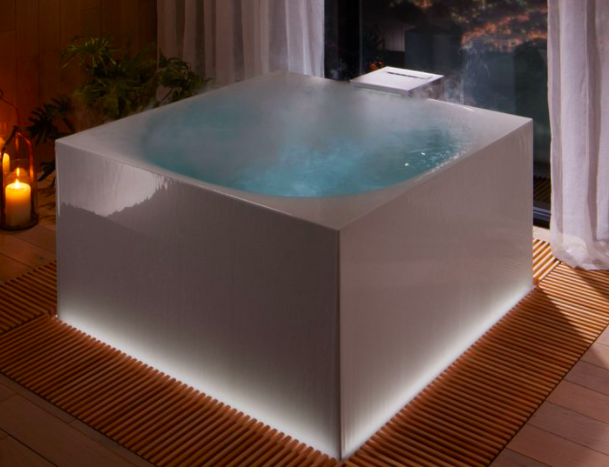
Home water security systems are fast becoming a thing
It’s been a relatively wet winter in California, but this year’s rain and snow aren’t enough to make up for several years of drought, and the future is looking bleak.
Is it time for homeowners and landlords to do their part? In much of the U.S., that answer is a yes, given that a good portion of our struggles with water scarcity have to do with leaks and other inefficiencies in our water systems.
Moen and Kohler are among the companies that are rolling out water security systems that can help make a smart home become even more intelligent and more water efficient. Moen offers a water monitor that can alert you for leaks and other problems within your home’s pipes, while a detector can flag overflowing drains, severe weather and appliance failures – and both systems work together. Kohler offers water systems that offer similar solutions – including one that will automatically shut off your home’s water supply if necessary. If you’re not moved by the impending water crisis, perhaps the threat of a pricey plumbing bill could give you that nudge to buy such devices and protect all that you’ve invested in your smart home.
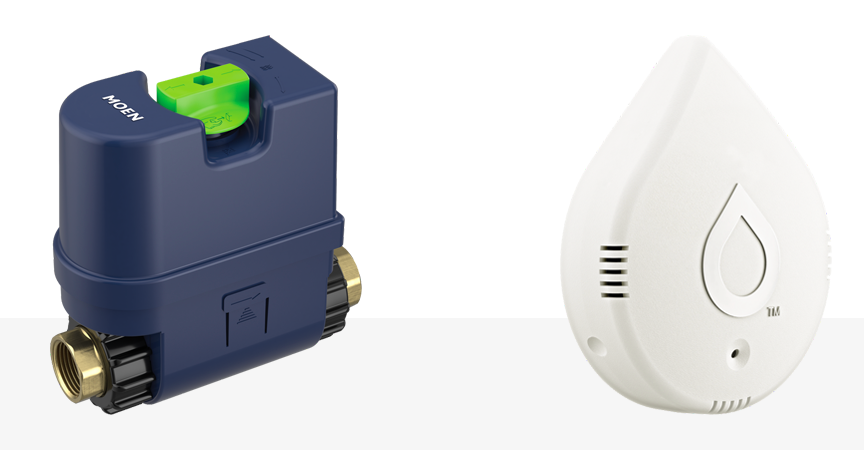
If only Sue Ann Nivens had these smart ovens at her disposal
Many of the leading appliance makers tout their versions of a smart, or smarter, oven. Whirlpool is upping the ante, though. As announced this month, several of its smart ovens are scoring an air fryer upgrade, one that will occur remotely – just be sure you have the app and wireless internet working. In case you’re still using gallons of vegetable oil to make French fries, air frying has become a thing because of its easy, energy efficiency and health benefits – as for the latter, even the Cleveland Clinic is on board. Eating smarter in your smart home? It doesn't sound so far-fetched.
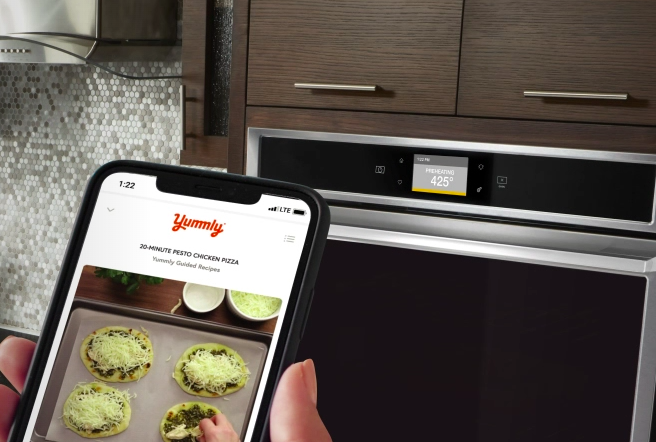
Now if only the late, great Betty White’s character, Sue Ann Nivens (shown above), had a smart oven with a safe soufflé option while the actress made her mark on the Mary Tyler Moore show back during the 1970s:
It’s more than a fridge, it’s a kitchen assistant
Chatter about the potential for smart refrigerators has been ongoing for over a decade. Is relying on internet of things (IoT) technologies really smart with the risks of malware and other threats? Are the added costs really worth the expense, especially as refrigerators have become more energy-efficient (but often have shorter life spans) over time?
Samsung’s Family Hub seeks to put those collective eye-rolls about smart fridges aside. Yes, there are the features that might nudge you to forget about the Fire TV, with a bevy of entertainment features that make having only an Alexa Dot in the home seem so last decade.
But at a time when food waste is still very much a problem nationwide, smart fridges are among the solutions we need to help us send less food to the trash. Among the bells and whistles that the Family Hub boasts include the ability to tap and see what’s in your fridge, as well as technology that offers meal ideas and recipes based on what foods are stacked on the shelves.
If you have the budget and find the popular stainless steel look to be cliché, the Family Hub is available in an impressive range of colors, too.
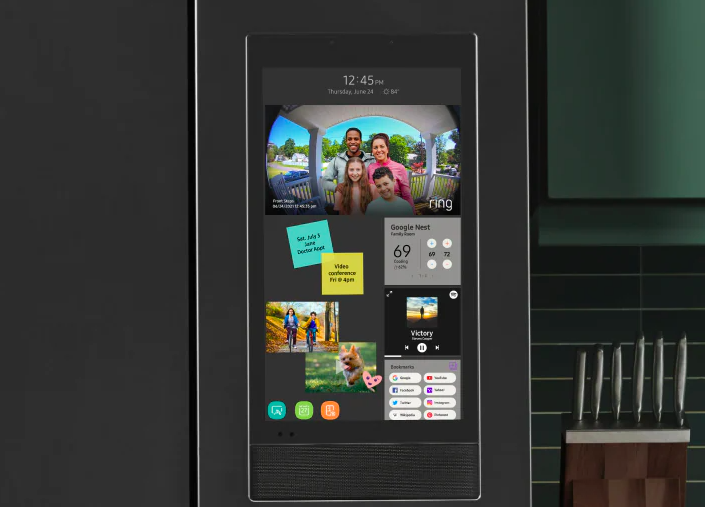
Rounding out the smart home - LG keeps improving its smart washers and dryers
The electronics manufacturer is among the companies making its presence known at CES, with its latest FX washer and dryer scoring swell reviews. Artificial intelligence takes the guesswork out of much of the tasks surrounding laundry, including measuring the perfect amount of detergent and heat allowing consumers to save water and energy – while reducing the annoyances involved with checking the dryer yet again to see if the clothes are dry. Spend a little more coin and a pet filter paired with a software upgrade. The cost for both starts at about $3,300 and will be available later this year.
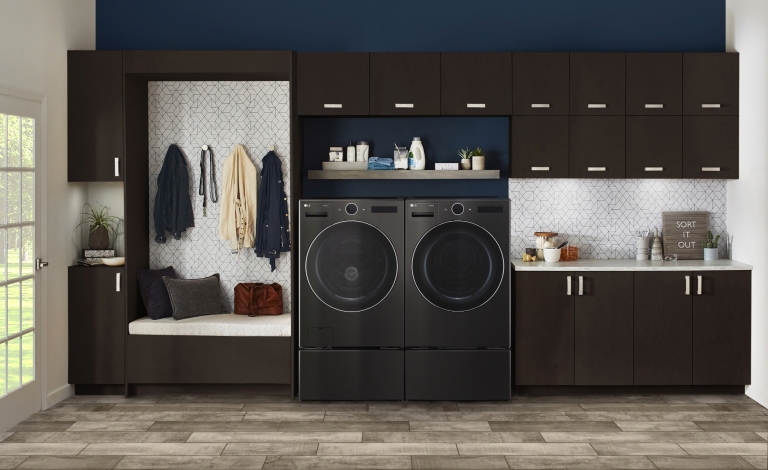
Image credit: CB Television via Wiki Commons

Leon Kaye has written for 3p since 2010 and become executive editor in 2018. His previous work includes writing for the Guardian as well as other online and print publications. In addition, he's worked in sales executive roles within technology and financial research companies, as well as for a public relations firm, for which he consulted with one of the globe’s leading sustainability initiatives. Currently living in Central California, he’s traveled to 70-plus countries and has lived and worked in South Korea, the United Arab Emirates and Uruguay.
Leon’s an alum of Fresno State, the University of Maryland, Baltimore County and the University of Southern California's Marshall Business School. He enjoys traveling abroad as well as exploring California’s Central Coast and the Sierra Nevadas.














